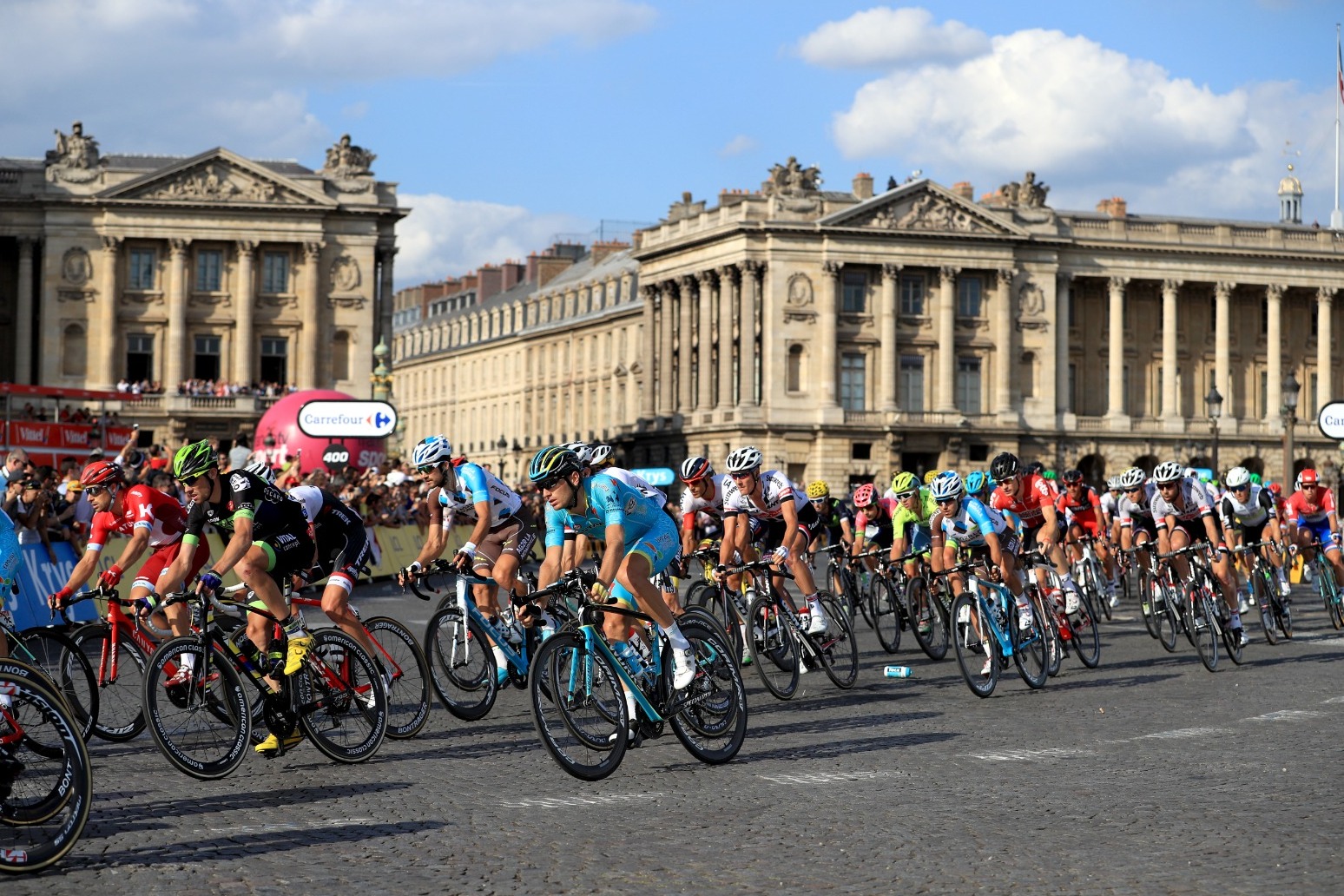
Brutally mountainous route awaits Tour de France riders next summer
A brutally mountainous route awaits riders in the 110th edition of the Tour de France next summer while the second Tour de France Femmes avec Zwift heads for a dramatic climax on the summit of the Tourmalet.
The routes for both races were unveiled by the Amaury Sports Organisation in Paris on Thursday, with the rumoured severity of the men’s race confirmed.
The 3,404 kilometre route will tackle all five of France’s mountain ranges and include only 22 kilometres of time trials – suiting the pure climbers but perhaps persuading the likes of Geraint Thomas, Primoz Roglic and Vuelta a Espana champion Remco Evenepoel to race the Giro d’Italia instead.
There are eight flat stages for the sprinters – with Mark Cavendish hoping to be among them as he chases what would be a record-breaking 35th Tour stage victory.
The 37-year-old Manxman is yet to confirm his team for next season – a scheduled announcement from B&B Hotels-KTM on their plans for 2023 was postponed earlier this week.
But it was the mountain goats who were licking their lips as Tour director Christian Prudhomme unveiled a route which includes four summit finishes – at Cauterets-Cambasque in the Pyrenees, the Puy de Dome in the Massif Central, the Grand Colombier in the Jura and at Saint-Gervais Mont-Blanc in the Alps.
Reigning champion Jonas Vingegaard was not at the route announcement in person but he would have liked what he heard, while former winner Tadej Pogacar sat smiling in the audience.
In all there are eight mountain stages – including stage 20 from Belfort to Le Markstein which packs five categorised climbs into only 133 kilometres before the peloton heads to Paris.
The only time trial is on stage 16 in the Arve valley, covering 22 kilometres between Passy and Combloux.
“The Tour de France is always hard, isn’t it?” Cavendish said. “I think the start is going to be the hardest one I’ve seen in my career but it’s exciting.
“It will change things up with the (general classification) riders dictating things pretty early on instead of settling in.
“But if the sprinters can survive the mountains, there’s ample opportunity for real bunch sprints.”
Fellow Brit Tom Pidcock, who won the stage on Alpe d’Huez last year, has his eye on the opening days in the Basque Country.
“For sure there are going to be super hard early stages,” he said. “There are more sprint stages than last year so (the route) is more to the extremes.
“I’ve not raced much in the Basque Country but I think this terrain suits me.”
The second edition of the relaunched women’s edition, the Tour de France Femmes avec Zwift, will again begin on the same day the men’s race finishes but this time the opening stage will be far away from Paris, starting and finishing in Clermont-Ferrand in the centre of France.
Over the following week the 956 kilometre race will wind its way south west towards the Pyrenees, with four flat stages and two hilly days before the race is decided over the final weekend.
The highlight will come on the penultimate day with a 90km stage from Lannemezan to the summit of the mighty Tourmalet via the Col d’Aspin, before the overall winner will be crowned after a 22km individual time trial around Pau the following day.
Reigning champion Annemiek Van Vleuten said: “I’m happy to see the famous climbs in the route for next year. The Tourmalet finish is exciting and it’s important they have a big uphill finish on this sort of climb.
“I’m happy to see a time trial in this Tour. Last year was an awesome start and this year they’ve fine-tuned it a little bit and I think they’ve done a good job.”
Published: by Radio NewsHub